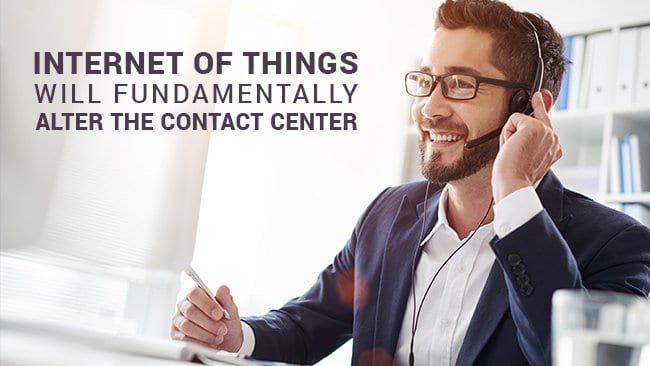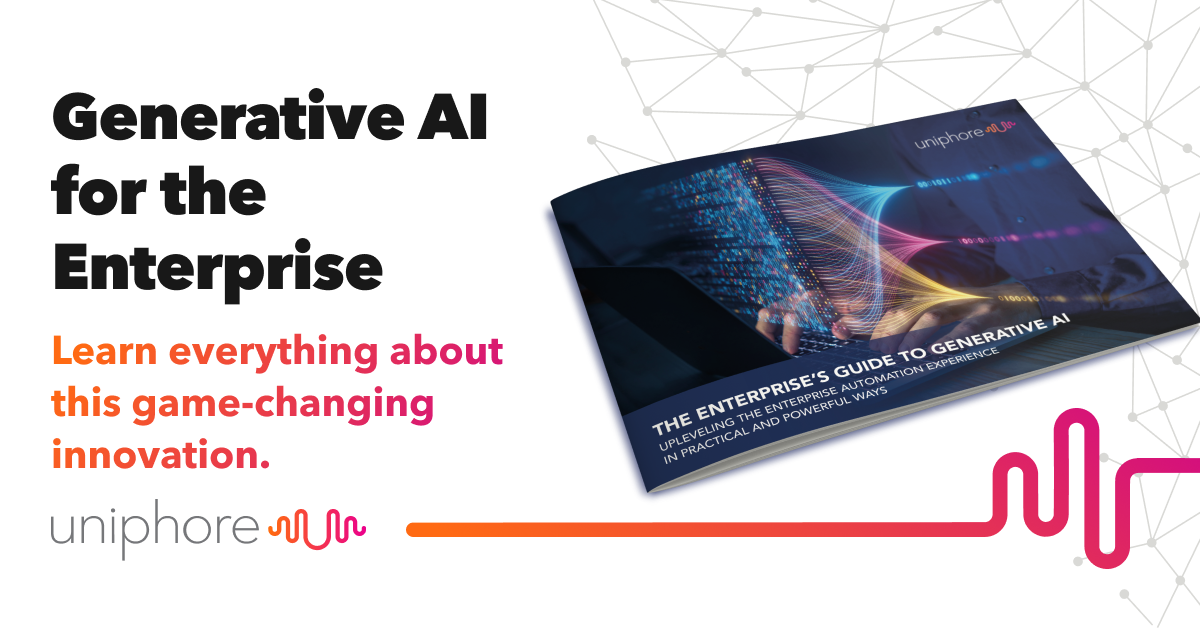
There is no doubt that the Internet of Things is going to significantly change how customer service is delivered. While adapting to the IoT has its challenges, benefits far outweigh.
The Internet of Things (IoT) is poised to fundamentally alter the way in which the world works, and contact centers will be no exception. IoT concept, whereby virtually any ‘thing’ – from refrigerators and microwave ovens to motor vehicles – can be connected to the Internet, is fast becoming a reality. In fact, Gartner predicts that some 20.4 billion ‘things’ will be connected by 2020, ¹ while Cisco IBSG goes even further, suggesting that it will be more like 50 billion. ²
In an era where exceptional customer service is probably the single biggest differentiator an organization can have, those businesses that successfully integrate IoT into their customer service offering will have the opportunity to take their brand to a whole new level.
Of course, anything that offers great benefits inevitably comes with its own unique challenges. Let’s have a look at some of the ways in which the IoT is going to impact on the contact center, along with the challenges and benefits that come along with each.
Personalized Customer Service:
With so many things connected, the sheer volume of data generated is going to provide contact centers with information beyond their wildest dreams. Not only will organizations be able to more quickly learn what technical issues regularly arise in particular products, speeding up their improvement, but more vitally, products which reveal consumer behavior – and among these would be health devices and motor vehicles – will enable companies to learn more about their customers. Using this information, they will be able to provide services which are tailored to individual consumers.
- Challenge: Large quantities of data will require advanced analytics
- Benefit: More personalized service will increase customer loyalty
IoT adds a new channel
The IoT is going to require contact centers to understand how to integrate smart object contact into the overall customer service experience. This will mean an additional channel added to the omni-channel center, one where the clients’ IoT-enabled products are capable of making contact with the centers on their behalf. We will soon reach a point where the customer is able to simply push the ‘contact’ button on their connected devices, in order to seek assistance. The omni-channel center already presents its fair share of challenges, which will no doubt become even more complex when the customer is contacting you from their car or their refrigerator.
- Challenge: Adding yet another channel to your omni-channel support structure
- Benefit: Makes it easier for customers to make contact, if required
Agents will need to be more specialized
When agents are required to handle a call, it will likely be of a complicated nature. Therefore, it will be crucial to ensure agents have specialized product knowledge and additional capabilities to digitally connect with the customer. Highly skilled agents will need to be completely familiar with not only the product and brand, but the entire ecosystem of connected devices.
- Challenge: Increased cost and time required to deliver additional training
- Benefit: Agents will be able to deliver a higher level of more specific service
Proactive Customer service
Since the IoT will allow smart objects to communicate potential problems even before these occur, customer service can become far more proactive. Instead of reacting to problems after they happen, companies will be able to prevent these from occurring at all. This will significantly reduce the customers’ need to reach out to the contact center, and will help the organization to differentiate itself by delivering a genuinely proactive service to its clients.
- Challenge: Effective data management will be critical
- Benefit: Reaching out to customers proactively reduces customer churn and increases loyalty
Better privacy and security is a must
IoT-enabled devices that require assistance from the contact center will mean that agents will need to use screen-sharing or gain remote access to successfully identify and solve these complex problems. They will also probably require greater access to customer information. This means an increased need for privacy and security training and an assurance to customers that proper security procedures are in place.
- Challenge: Need to improve company policies related to privacy and security
- Benefit: Ability to deliver hands-on service to improve the customer experience
Looking at the above, there is no doubt that the IoT is going to have huge implications for the contact center. Although not without its share of challenges, the IoT offers enterprises the opportunity to deliver proactive service, as well as to be better prepared at the moment of engagement.
The IoT is clearly going to transform contact centers, as it will enable them to gain more control of customer service by providing new streams of information that are integrated into the existing infrastructure, and most vitally, will provide an opportunity to add additional value to current service offerings.
Ultimately, the IoT should lead to an enhanced level of customer service, more knowledgeable and productive agents and – if applied correctly – offer the business a differentiator that allows it to reduce customer churn while considerably improving cost savings.
[About the author]


